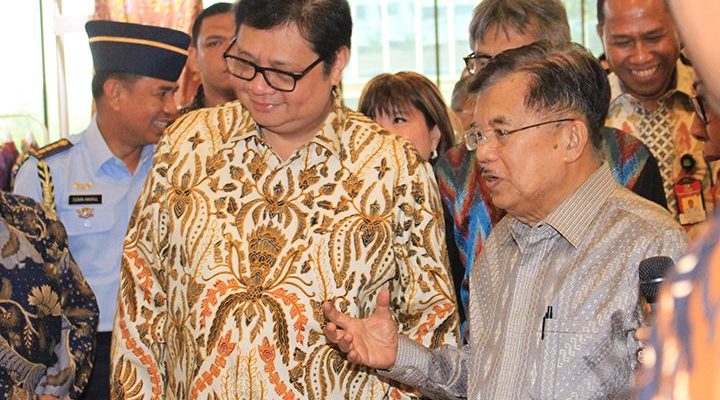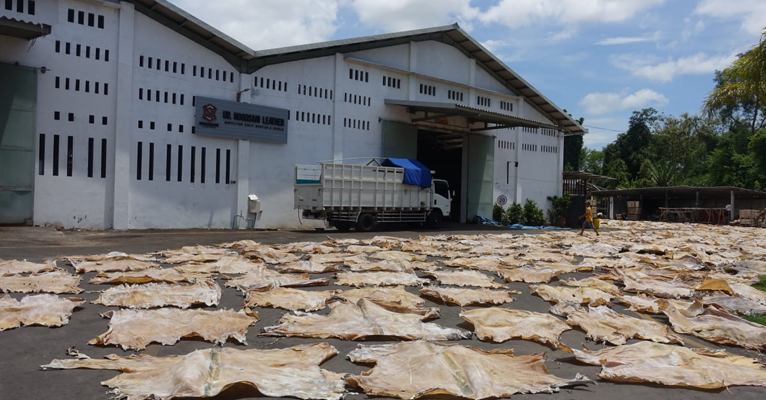Industri kulit sering kali dikaitkan dengan tantangan keberlanjutan, namun UD Nogosari Leather dari Kabupaten Lumajang…

Digital Skilled HR Supports Industry 4.0

Human resources (HR) are one of the main factors in supporting the implementation of the fourth industrial revolution. However, the human resources needed by the industry today are those who have competence in using digital technology.
“HR cannot be separated from industrial activities. Even though we have now entered the digital era," said Industry Minister Airlangga Hartarto at the 10th National Conference of the Indonesian Employers' Association (Apindo) in Jakarta, Tuesday (24/4).
For this reason, the Ministry of Industry has rolled out various vocational education and training programs to welcome industry 4.0. "For example, vocational education is a link and match between industry and Vocational High Schools (SMK)," said the Minister of Industry.
The Ministry of Industry has launched the vocational program in five stages. Its territory includes East Java, Central Java and Yogyakarta, West Java, North Sumatra, as well as DKI Jakarta and Banten. The whole industries involved were 558 companies and 1,537 SMKs.
"For the development of human resources at the polytechnic, we also have a skill for competitiveness (S4C) program in collaboration with Switzerland," said Airlangga. In the initial stage, four polytechnics are belonging to the Ministry of Industry that will be developed in this collaboration.
The polytechnics are Morowali Metal Polytechnic, Central Sulawesi, Kendal Wood and Wood Processing Polytechnic, Central Java, Cilegon Petrochemical Industry Polytechnic, Banten, and the Bantaeng Metal Industry Community Academy, South Sulawesi.
“Like in Morowali, there is a metallurgical laboratory. It is better than the current state universities," said the Minister of Industry. Morowali is a district in Central Sulawesi with very rapid economic growth, reaching 60 percent or 12 times the national economic growth.
The region's development was also greatly influenced by the establishment of the Morowali Industrial Estate, which mostly consisted of nickel smelter companies that were able to increase added value, absorb a lot of workers, and provide foreign exchange from exports. "Products from Morowali are one of the best in Southeast Asia," he said.
Therefore, continued Airlangga, the government continues to encourage more national entrepreneurs, especially those who are members of Apindo, to be involved in vocational education and training programs. "The implementation of the digital industry or industry 4.0 is in the hands of entrepreneurs. Meanwhile, the government will make the roadmap,” he explained.
Don't lose workers
The Minister of Industry emphasized that fourth-generation industrial technology does not necessarily eliminate conventional industrial activities. This is because there are certain products that conventional industries can only produce. “For example, the non-machine loom (ATBM) is still being pushed by Apindo. So, it is not true that the manual industry will disappear immediately. The proof is that ATBM is still being encouraged," he explained.
Airlangga also said that although digitalization is unavoidable, this era of change will not eliminate job opportunities. In fact, there are a variety of new professions that will be created from technological developments.
“For example, behind the operation of a robot, it definitely requires human labor. He said that online motorcycle taxi applications still need humans as drivers," he said. Because industry 4.0 is a continuation of the third industrial revolution which requires everything related to the internet and the need for fast and large data. "Therefore, it is very important to be prepared to face this situation," he added.
Airlangga also believes that the digitization process will not completely erode conventional traders to street vendors. Even digitization can make them more creative and develop by utilizing new applications. "They can develop with online shopping applications such as Tokopedia," he said.
In encouraging national small and medium industries (IKM) to be able to use digital technology, the Ministry of Industry has made facilities through e-Smart IKM. As many as 1,730 IKM players have participated in e-Smart IKM workshops. Until 2019, the Ministry of Industry targets to invite 10 thousand IKM actors throughout Indonesia to take part in the workshop.
Open jobs
On this occasion, the Minister of Industry emphasized that the main purpose of the issuance of Presidential Regulation (Perpres) Number 20 of 2018 concerning the Use of Foreign Workers is to improve the investment climate in Indonesia. With so many investors who will invest their capital in Indonesia, it can open up a lot of new job opportunities.
"Since long ago, foreign workers, especially those who are experts, come to Indonesia with investors. Don't come and look for work yourself in Indonesia," he said. So through the presidential regulation, the government makes it easy for foreign experts to grant visas to transfer knowledge and technology to local workers.
“For example, a maintenance company needs an expert for at least six months to work on it. Now, if the permit is only for three months, how can the factory operate and run," he said. So, the qualifications of foreign workers who may enter Indonesia are not relaxed, only workers with special skills whose availability is lacking in Indonesia are allowed to enter.
In addition, specifically for the digital industry sector, Indonesia needs many experts from abroad to provide training for local startups. If they cannot enter, the software development will be forced to be outsourced to other countries. “For example, in Yogyakarta, many call centers have been built there. That's what we encourage because the comparison is 1 expert, 1,000 other workers," said Airlangga.
Furthermore, from the outset, the government stated that the re-regulation of licensing for the use of foreign workers in Indonesia was to support the national economy and expand job opportunities through increased investment.



This Post Has 0 Comments